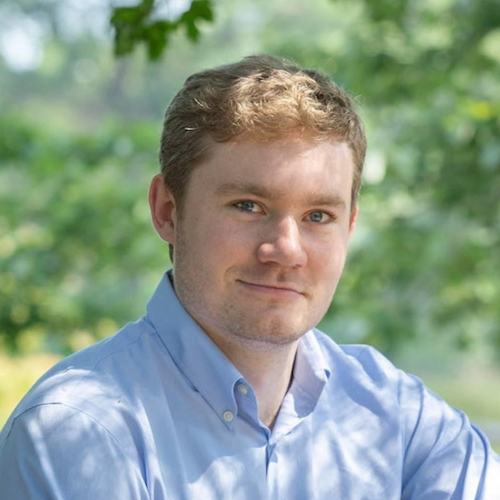Sam Curry '19

Area(s) of Study
Major in Neuroscience and Minor in Chemistry
Hometown
Chicago, Illinois
Graduate Study
MA Clinical Mental Health Counseling
Northwestern University
What made you choose Lake Forest College?
I wanted to receive an excellent liberal arts education at a small college that was close to Chicago. Additionally, I wanted to go to a college that had small class sizes so that it would be possible for me to have close working relationships with my professors. Furthermore, I wanted to go to a college with an excellent pre-health program. Lake Forest College was able to provide all of this and so much more for me. I am extremely proud to be an alumnus of Lake Forest College!
How did a liberal arts education make a difference for you
After having received a liberal arts education, I feel like I am now a well-rounded individual capable of effectively integrating information, skills, and perspectives that I acquired from the interdisciplinary college curriculum that Lake Forest College provides its students. As a future counselor, I am extremely grateful to have received an excellent liberal arts education since I am confident that I have a very solid knowledge base in a variety of disciplines that will assist me in becoming a well-rounded and competent clinician.
What experiences outside of the classroom do you think helped prepare you for a master's program in clinical mental health counseling?
While I was in college, some of the best preparatory experiences I had were the summer research opportunities with the Richter Scholar Program and the Lake Forest College-Rosalind Franklin University of Medicine and Science Summer Scholars Program. Additionally, I found it extremely helpful to talk to and shadow health care professionals in different fields in order to determine which profession was the best fit for me. After college, I took a gap year and worked full-time as a clinical research assistant at Shirley Ryan AbilityLab and volunteered part-time for Crisis Text Line as a crisis counselor. Both of these experiences helped to provide clarity on the type of graduate training I wanted to receive in order to achieve my future career goals.
How did your time at Lake Forest College help prepare you for applying to graduate school?
My close working relationships with professors was extremely helpful when I began to apply to graduate school. Each professor I asked to write on my behalf for graduate school knew me really well and could provide excellent letters of recommendation. In addition to advice from my professors, the Career Advancement Center at Lake Forest College was an extremely useful resource when I was developing my CV. Last but not least, the challenging and engaging course work at Lake Forest College helped provide me with the foundational knowledge and skills that were necessary before applying to clinical psychology doctoral programs.
What skills and experiences at Lake Forest do you believe will help you be successful?
I believe that the strong work ethic I developed while at Lake Forest College will definitely help me in my future career and throughout my life. I also believe that the well-rounded education I received at Lake Forest College will allow me to effectively collaborate with professionals from other disciplines. Additionally, I am confident that the strong writing, presentation, and critical thinking skills that I developed while I was a student at Lake Forest College will greatly benefit me as a future health care professional.
What advice would you give to a high school student looking to pursue pre-health and is looking at Lake Forest College?
My main piece of advice would be to keep an open-mind coming into college—take a variety of different classes from multiple disciplines; become involved in different clubs and organizations on campus; get involved in some kind of research early on in your college career; form close working relationships with your professors; shadow health care professionals in different fields. All of these experiences will help the student figure out what topics are exciting to them, what their aptitudes and interests are, and whether a career in health care is right for them.

